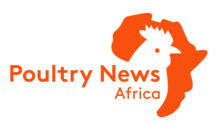Across Africa, poultry farmers continue to face a major challenge: the rising cost of broiler feed. With feed accounting for up to 70% of total production expenses, the search for affordable and nutritionally rich ingredients has become urgent. One solution that is rapidly gaining attention across the continent is Dried Distillers Grains with Solubles (DDGS)—a high-value by-product of ethanol production that is proving to be a game-changer in broiler nutrition.
DDGS is produced after grains such as maize, wheat, or sorghum are fermented during ethanol manufacturing. Once the starch is removed, what remains is a concentrated blend of proteins, fiber, fats, amino acids, and minerals. This composition makes DDGS far more nutrient-dense than the original grains. Many ethanol plants across the world are now producing high-quality DDGS, and its availability in Africa is steadily increasing as countries adopt biofuel technologies and promote local manufacturing.
The significance of DDGS in poultry feeding lies in its nutritional richness. It contains substantial levels of crude protein—sometimes reaching up to 30–40% depending on the source—making it an ideal substitute for more costly protein ingredients like soybean meal. Additionally, it is naturally rich in essential amino acids and phosphorus, offering broilers the nutrients they need for healthy growth, immunity, and optimal feed conversion. For African farmers who often struggle with high costs of imported feed ingredients, DDGS provides a promising alternative that can reduce expenses without compromising bird performance.
However, the adoption of DDGS also comes with important considerations. A major challenge is the variability in quality from one production plant to another. Factors such as grain type, processing temperature, and drying methods can significantly influence the nutrient composition of DDGS. This means that feed formulators must test and understand the specific DDGS they are using to avoid inconsistencies in broiler performance. Poor-quality or overheated DDGS may have reduced digestibility, especially with sensitive amino acids like lysine.
Another concern involves feed pellet quality. Research shows that higher inclusion rates of DDGS can affect pellet durability and texture, which may lead to reduced feed intake among broilers. For this reason, many nutritionists recommend moderate inclusion levels, often between 10% and 20%, to achieve the best balance between cost savings and bird performance. At these levels, numerous studies confirm that DDGS can be safely used without negatively affecting growth rates, carcass quality, or feed efficiency.
In the African context, DDGS presents unique opportunities that go beyond nutrition. Its growing availability is helping reduce reliance on imported ingredients, strengthening local feed industries, and supporting regional value chains. Countries with developing ethanol industries stand to benefit economically, as the production of DDGS creates new markets for local grain farmers and reduces foreign currency expenditure on feed imports. This shift is particularly important for small and medium-scale poultry producers who are the backbone of Africa’s poultry sector.
Looking ahead, DDGS is poised to play a central role in shaping the future of broiler feed in Africa. To maximize its benefits, stakeholders must invest in improved quality control, farmer training, and research tailored to African production systems. Feed manufacturers should prioritize testing and standardizing DDGS to ensure consistent nutrient profiles. Governments and industry partners can further support the expansion of ethanol production and feed milling technologies that enhance the use of DDGS.
In conclusion, DDGS represents a powerful opportunity for transforming Africa’s broiler industry. With its high nutritional value, cost-effectiveness, and potential to support local value chains, it stands out as a reliable tool for making poultry production more affordable, efficient, and sustainable across the continent.



